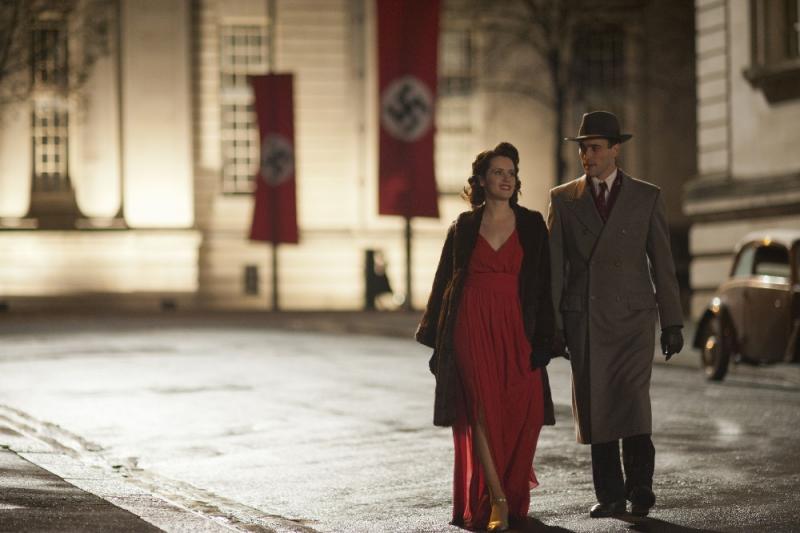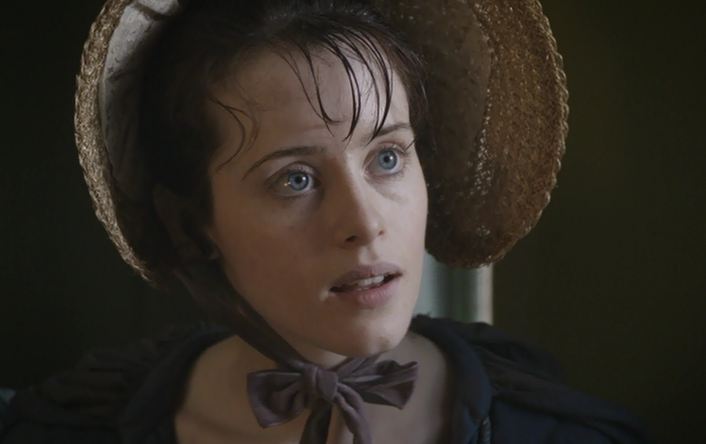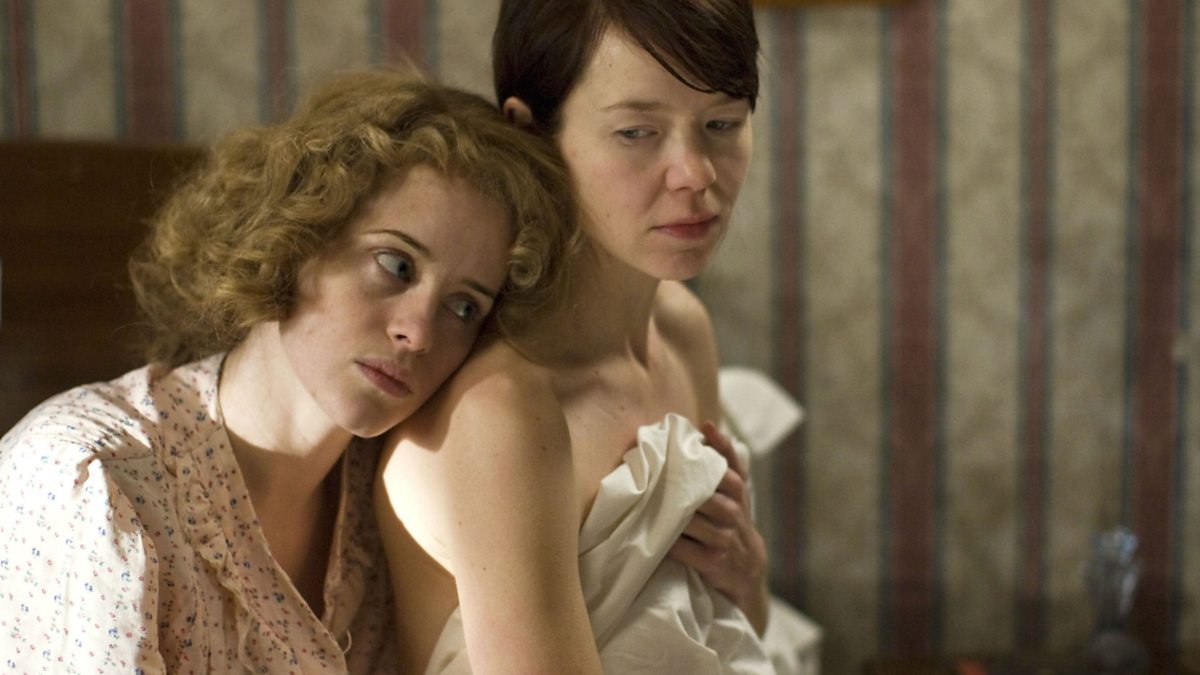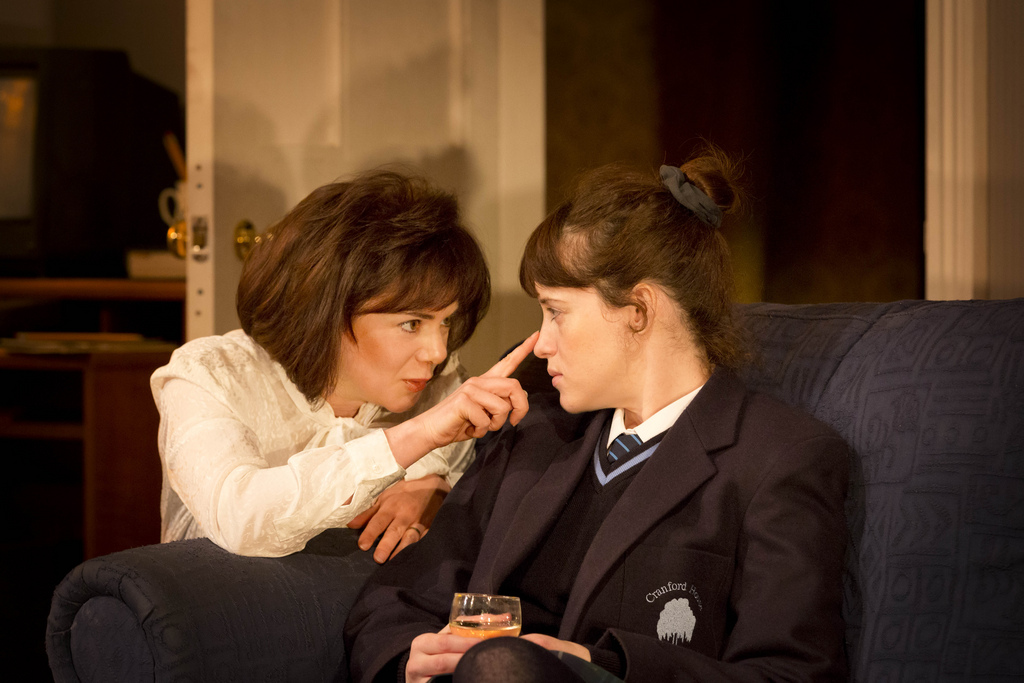Upstairs Downstairs, Series Two, BBC One | reviews, news & interviews
Upstairs Downstairs, Series Two, BBC One
Upstairs Downstairs, Series Two, BBC One
The BBC's answer to Downton Abbey limps back without its two creators, and this time it's war (almost)

You remember Upstairs Downstairs – the lavish 2010 period drama-cum-soap based around servants and their masters that had the misfortune of not being named Downton Abbey. Making its entrance some three months after ITV’s series despite being filmed first, Upstairs played like the indignant, overshadowed elder sibling to Downton’s effervescent, effortlessly successful young upstart.
To add insult to injury, this second series limps onto our screens sans two of its central cast members – who also happen to be the women who created the series back in 1970. Actress Jean Marsh, who’s picked up an Emmy and two Golden Globe nominations over the years for her portrait of feisty maid Rose, suffered a stroke in October and will be absent until the fourth episode. Meanwhile Dame Eileen Atkins, aka the formidable Lady Maud Holland, declined to return for the second series. Her absence is explained by an off-screen death, while Alex Kingston has a go at filling her shoes as Lady Maud’s younger half-sister Dr Blanche Mottershead.
 But it’s not just behind the scenes where things are looking grim. The new series finds us in 1938, the threat of war looming large over upstairs and downstairs alike. Diplomat Sir Hallam (Ed Stoppard) is having a particularly rough time of it: he’s wrapped up in peace negotiations with Germany, his wife Lady Agnes (Keeley Hawes, pictured right with Stoppard) is looking distinctly peaky after a near-miscarriage, and his aforementioned aunt (Kingston) is outstaying her welcome and showing a staggering lack of respect for his mother’s memory.
But it’s not just behind the scenes where things are looking grim. The new series finds us in 1938, the threat of war looming large over upstairs and downstairs alike. Diplomat Sir Hallam (Ed Stoppard) is having a particularly rough time of it: he’s wrapped up in peace negotiations with Germany, his wife Lady Agnes (Keeley Hawes, pictured right with Stoppard) is looking distinctly peaky after a near-miscarriage, and his aforementioned aunt (Kingston) is outstaying her welcome and showing a staggering lack of respect for his mother’s memory.
Unsurprisingly, it’s downstairs that provides the most compelling storyline, though in this episode there’s scant competition. After he takes the blame for the endearingly gormless Johnny’s (Nico Mirallegro) inadvertent monkey murder, it emerges that Pritchard (Adrian Scarborough) has a sizeable skeleton in his closet: he spent time in prison during World War One for refusing to fight. This makes for some reasonably well-executed tension with the rest of the servants – in particular Mr Amanjit (Art Malik, pictured below) – and Scarborough’s understated turn remains one of the series’ strongest assets.
 There are no bad performances as such, but there’s a curiously stilted quality that the show just can’t seem to shake, while the dialogue meanders between uninspired and dimly cringe-inducing (Blanche’s “As we are in England, I suggest you make some tea” is a forced low point.) There are two promising additions to the downstairs contingent in the form of guileless kitchen maid Eunice (Ami Metcalf) and opinionated nursery maid Beryl (Laura Haddock), both of whom make more of an impression with their limited screen time than much of the longer-standing cast. That said, Hallam’s reunion in Germany with his wife’s reckless, newly Nazi-sympathising sister Lady Persephone (Claire Foy) left ajar one or two semi-intriguing doors.
There are no bad performances as such, but there’s a curiously stilted quality that the show just can’t seem to shake, while the dialogue meanders between uninspired and dimly cringe-inducing (Blanche’s “As we are in England, I suggest you make some tea” is a forced low point.) There are two promising additions to the downstairs contingent in the form of guileless kitchen maid Eunice (Ami Metcalf) and opinionated nursery maid Beryl (Laura Haddock), both of whom make more of an impression with their limited screen time than much of the longer-standing cast. That said, Hallam’s reunion in Germany with his wife’s reckless, newly Nazi-sympathising sister Lady Persephone (Claire Foy) left ajar one or two semi-intriguing doors.
There’s a pervasive atmosphere of dread thanks to the pre-wartime setting, which gives this second outing something of an advantage over the first – the everyday realities of collecting gas masks, or the gas-proof pram that looks unsettlingly like a coffin, leave a genuine chill. But writer Heidi Thomas seems to be leaning rather too heavily on the appeal of dramatic irony. This episode ends with a stay of execution in the form of an apparent peace announcement, and Eunice asks “Is it over?” Blanche responds with cryptic loftiness, “This is history, Eunice. It’s never over.” It’s the kind of portentous line that encompasses why Upstairs will remain the runner-up – in contrast to Downton’s twinkle-in-the-eye appeal, this is a series that remains determinedly blank-eyed and po-faced.
CLAIRE FOY’S CV

Little Dorrit (2008). “Dickens did just see her as homely, angelic and giving. I looked on her as a sort of a carer whose parent or child is ill. That made her believable in my head.”
Upstairs Downstairs (2010-12). Lady Persephone, posh little brown shirt based on the Hitler-obsessed Unity Mitford, tops herself in a dramatic exit from the second series.
The Night Watch (2011). Foy plays a troubled lesbian toy girl in an adaptation of Sarah Waters’ novel about heartache in the Blitz (pictured below with Anna Maxwell Martin)
 Wreckers (2011). Foy is wife to Benedict Cumberbatch in fraught low-budget Fenland drama
Wreckers (2011). Foy is wife to Benedict Cumberbatch in fraught low-budget Fenland drama
The Promise (2011). In Peter Kosminsky’s epic historical drama, Foy plays Erin Matthews, an 18-year-old obsessed with investigating the story of the British soldiers serving in Palestine in the years before our ignominious exit. “I just recognised quite a lot of things about me when I was her age.”
White Heat (2012). Foy is a feminist child of the Sixties who grows up to become Juliet Stevenson.
Hacks (2012). Guy Jenkin comedy inspired by the hacking scandal, in which Foy's feral tabloid editor Kate Loy is not remotely based on to Rebekah Brooks. A rare comic outing for an actress with natural funny bones.
 Love, Love, Love (2012). In Mike Barlett’s played Foy played a child of a hippie baby boomer. “It’s the Philip Larkin thing: she really does believe her parents did fuck her up. I hope I’m not like she is when she’s 37." (Pictured, Foy with Victoria Hamilton)
Love, Love, Love (2012). In Mike Barlett’s played Foy played a child of a hippie baby boomer. “It’s the Philip Larkin thing: she really does believe her parents did fuck her up. I hope I’m not like she is when she’s 37." (Pictured, Foy with Victoria Hamilton)
Macbeth (2013). “Why does everyone think she’s so evil? My approach to every character is you essentially want to understand. They always have something they are fighting against. They have lost a baby and that’s the catalyst for everything.”
Wolf Hall (2015). Foy’s Anne Boleyn goes toe to toe with Mark Rylance and Damian Lewis.
The Crown (2016). Queen of all she surveys. Bring on series two.
Add comment
The future of Arts Journalism
You can stop theartsdesk.com closing!
We urgently need financing to survive. Our fundraising drive has thus far raised £49,000 but we need to reach £100,000 or we will be forced to close. Please contribute here: https://gofund.me/c3f6033d
And if you can forward this information to anyone who might assist, we’d be grateful.

Subscribe to theartsdesk.com
Thank you for continuing to read our work on theartsdesk.com. For unlimited access to every article in its entirety, including our archive of more than 15,000 pieces, we're asking for £5 per month or £40 per year. We feel it's a very good deal, and hope you do too.
To take a subscription now simply click here.
And if you're looking for that extra gift for a friend or family member, why not treat them to a theartsdesk.com gift subscription?
more TV
 Mr Scorsese, Apple TV review - perfectly pitched documentary series with fascinating insights
Rebecca Miller musters a stellar roster of articulate talking heads for this thorough portrait
Mr Scorsese, Apple TV review - perfectly pitched documentary series with fascinating insights
Rebecca Miller musters a stellar roster of articulate talking heads for this thorough portrait
 Down Cemetery Road, Apple TV review - wit, grit and a twisty plot, plus Emma Thompson on top form
Mick Herron's female private investigator gets a stellar adaptation
Down Cemetery Road, Apple TV review - wit, grit and a twisty plot, plus Emma Thompson on top form
Mick Herron's female private investigator gets a stellar adaptation
 theartsdesk Q&A: director Stefano Sollima on the relevance of true crime story 'The Monster of Florence'
The director of hit TV series 'Gomorrah' examines another dark dimension of Italian culture
theartsdesk Q&A: director Stefano Sollima on the relevance of true crime story 'The Monster of Florence'
The director of hit TV series 'Gomorrah' examines another dark dimension of Italian culture
 The Monster of Florence, Netflix review - dramatisation of notorious Italian serial killer mystery
Director Stefano Sollima's four-parter makes gruelling viewing
The Monster of Florence, Netflix review - dramatisation of notorious Italian serial killer mystery
Director Stefano Sollima's four-parter makes gruelling viewing
 The Diplomat, Season 3, Netflix review - Ambassador Kate Wyler becomes America's Second Lady
Soapy transatlantic political drama keeps the Special Relationship alive
The Diplomat, Season 3, Netflix review - Ambassador Kate Wyler becomes America's Second Lady
Soapy transatlantic political drama keeps the Special Relationship alive
 The Perfect Neighbor, Netflix review - Florida found-footage documentary is a harrowing watch
Sundance winner chronicles a death that should have been prevented
The Perfect Neighbor, Netflix review - Florida found-footage documentary is a harrowing watch
Sundance winner chronicles a death that should have been prevented
 Murder Before Evensong, Acorn TV review - death comes to the picturesque village of Champton
The Rev Richard Coles's sleuthing cleric hits the screen
Murder Before Evensong, Acorn TV review - death comes to the picturesque village of Champton
The Rev Richard Coles's sleuthing cleric hits the screen
 Black Rabbit, Netflix review - grime and punishment in New York City
Jude Law and Jason Bateman tread the thin line between love and hate
Black Rabbit, Netflix review - grime and punishment in New York City
Jude Law and Jason Bateman tread the thin line between love and hate
 The Hack, ITV review - plodding anatomy of twin UK scandals
Jack Thorne's skill can't disguise the bagginess of his double-headed material
The Hack, ITV review - plodding anatomy of twin UK scandals
Jack Thorne's skill can't disguise the bagginess of his double-headed material
 Slow Horses, Series 5, Apple TV+ review - terror, trauma and impeccable comic timing
Jackson Lamb's band of MI5 misfits continues to fascinate and amuse
Slow Horses, Series 5, Apple TV+ review - terror, trauma and impeccable comic timing
Jackson Lamb's band of MI5 misfits continues to fascinate and amuse
 Coldwater, ITV1 review - horror and black comedy in the Highlands
Superb cast lights up David Ireland's cunning thriller
Coldwater, ITV1 review - horror and black comedy in the Highlands
Superb cast lights up David Ireland's cunning thriller
 Blu-ray: The Sweeney - Series One
Influential and entertaining 1970s police drama, handsomely restored
Blu-ray: The Sweeney - Series One
Influential and entertaining 1970s police drama, handsomely restored

Comments
This series certainly does
The fictional Upstairs
nobody could hold a candle to
What an outstanding second